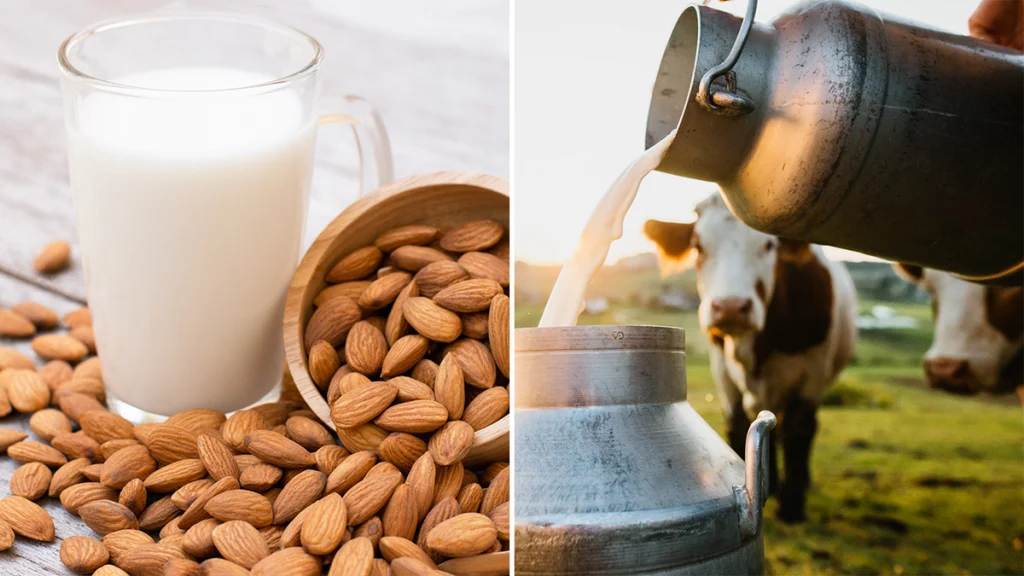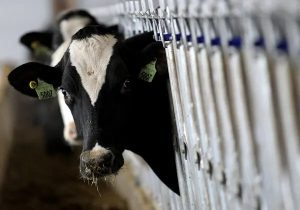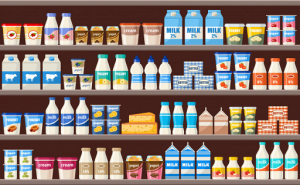
A new proposal issued by the U.S. Food and Drug Administration (FDA) is suggesting that beverage producers responsible for making plant-based milk alternatives should be allowed to use the term “milk” to describe their products despite having no actual dairy content.
On Wednesday, the FDA announced it is sharing its “current view on the naming of plant-based milk” and will welcome feedback from the public as the government agency attempts to finalize its guidelines on the topic.
In a 29-page draft guidance, the FDA outlined that it’s considering the potential terminology allowance because most consumers understand the differences between plant- and animal-produced milk due to the non-dairy market’s growth. That growth has led to the colloquial use of the word “milk” when referencing the byproduct that’s made when water is combined with a tree nut, legume, seed or grain.
“The variety of plant-based milk alternatives available in the marketplace has also greatly expanded from soy, rice and almond to include cashew, coconut, flaxseed, hazelnut, hemp seed, macadamia nut, oat, pea, peanut, pecan, quinoa and walnut-based,” the FDA wrote in its draft guidance.
The agency noted that plant-based milk consumption in the U.S. went from one in five households in 2010 to one in three households in 2016.
By 2020, retail sales for plant-based milk reportedly rose to approximately $2.4 billion.
The FDA stated that most of the consumer responses it has received about plant-based milk cite shifting diets as the main reason for their dairy-free purchase.
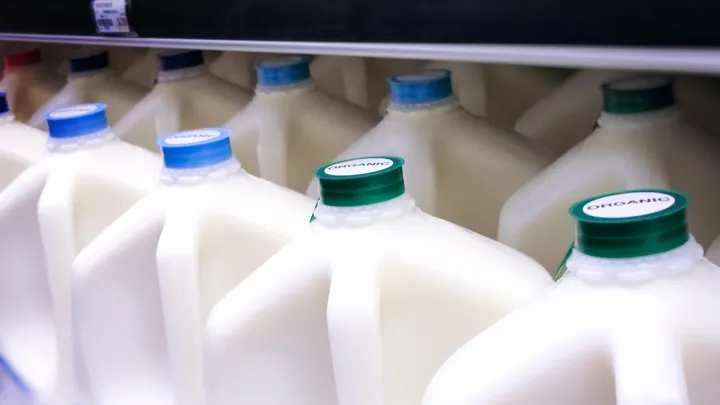
In the “Consumer Understanding of Plant-based Milk Alternatives” section of the draft guidance, the FDA wrote that multiple studies show that the majority of retail shoppers know that plant-based milk alternatives do not contain animal-produced milk, and they’re not confused when they see the word “milk” on a plant-based beverage label.
“One consumer survey suggested that about three-quarters of its respondents understood that plant-based milk alternatives do not contain milk; fewer than 10 percent believed that plant-based milk alternatives do contain milk, and the remainder did not know,” the FDA continued.
The FDA also noted that commissioned and internally conducted focus groups suggested that the word milk “is strongly rooted” in consumer vocabulary when discussing plant-based milk alternatives.
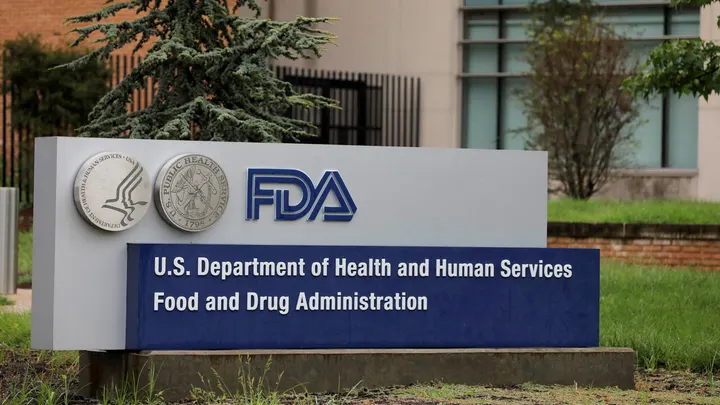
Soy milk and almond milk are two examples the FDA listed as plant-based milk alternatives that “appear to be established by common usage.”
Consumers who participated in the FDA’s focus groups reportedly indicated that they “feel familiar and comfortable” using the word “milk” when referring to plant-based alternatives in place of the words like “beverage” or “drink.”
Focus group participants stated that they purchase plant-based milk to accommodate their allergies, intolerances to dairy milk and lifestyle choices, such as having a vegan diet or wanting to drink a liquid with lower fat and cholesterol content.
Under the Federal Food, Drug, & Cosmetic Act (FD&C Act), the FDA has the authority to establish definitions and standards of identity for foods, including the naming conventions of common or usual foods, conformity mandates and label requirements.
The FDA established a standard of identity for milk in 1973, and it defines the dairy product as “the lacteal secretion, practically free from colostrum, obtained by the complete milking of one or more healthy cows.”
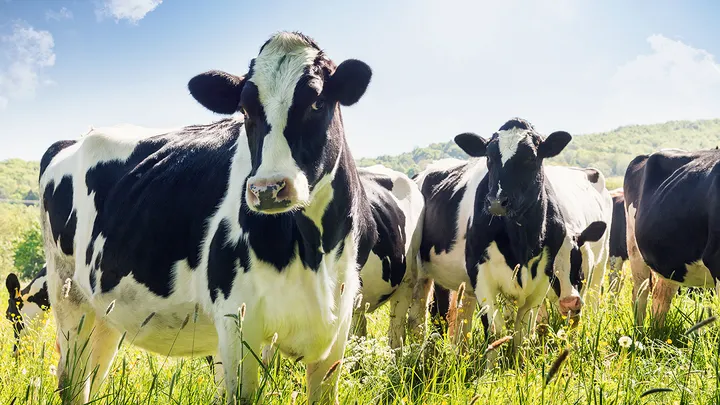
Beverage products that purport to be milk are required to conform to the definition and standard of milk with clear labeling that describes it as such, according to the FDA.
“Products that do not purport to be and are not represented as milk are not subject to these requirements,” the FDA wrote. “Plant-based milk alternatives are not milk; they are made from plant materials rather than the lacteal secretion of cows. Consequently, under the FD&C Act, they may not be offered for sale as ‘milk.’”
The FDA noted that “although many plant-based milk alternatives are labeled with names that bear the term ‘milk’ (e.g., ‘soy milk’), they do not purport to be nor are they represented as milk” and consumers mostly understand this despite the dairy-free product being placed next to animal milk in grocery stores.
The FDA doesn’t have a standard of identity for plant-based milk. It also doesn’t require labeling that marks plant-based milk as an “imitation” milk because imitation foods are determined by resemblance and nutritional inferiority, according to the FD&C Act.

The FDA’s draft guidance acknowledged that the agency recognizes there are First Amendment free speech considerations the agency must make when regulating commercial speech for food and drink labeling.
Fox News Digital reached out to the FDA for comment.
The FDA acknowledges that the nutritional content of plant-based and animal-produced milk varies greatly depending on the raw materials and processing methods that are used, the fortification of vitamins and minerals and the addition of other ingredients like sugar and oil.
The agency encourages the use of “dairy-free” and “non-dairy” labeling on plant-based milk products to ensure “truthful and not misleading label statements” for consumers, but it’s not mandatory the same way as naming the plant-based milk source, the draft guidance noted.
The FDA’s proposal recommends that plant-based milk manufacturers volunteer nutrient statements that describe how the product nutritionally differs from animal-produced milk, so consumers can make informed decisions about their dietary choices.
“[The] FDA seeks to improve dietary patterns in the United States to help reduce the burden of nutrition-related chronic diseases and advance health equity,” the agency wrote in its overview and purpose section. “Ensuring plant-based milk alternative labels are clear will help enable consumers to quickly ascertain the attributes of products they are purchasing for themselves and their families.”

In 2018, the FDA requested comment from the public on the “Use of the Names of Dairy Foods in the Labeling of Plant-Based Products.”
The agency reportedly received over 13,000 comments on plant-based foods that include dairy terms in their names.
The FDA’s current draft guidance on “Labeling of Plant-Based Milk Alternatives and Voluntary Nutrient Statements: Guidance for Industry” can be viewed at: fda.gov/media/165420/download.
Consumers can share their thoughts on the naming and nutrition labeling of plant-based milk through an online comment submission on regulations.gov or a mailed comment to the FDA’s dockets management team.
Dockets Management
Food and Drug Administration
5630 Fishers Lane, Rm 1061
Rockville, MD 20852
Note from the FDA: All written comments about plant-based milk should be identified with this docket number — FDA-2023-D-0451.
Comments from the public must be submitted by Monday, April 24, 2023, to ensure the FDA has a chance to consider consumer points before the agency works on the final version of its guidance.
Plant-based milk producers and dairy farm associations have long been at odds regarding the use of the word milk, and both have urged the FDA to make clear and enforceable guidelines.
Usage of the term “milk” on plant-based milk packaging has been debated in courts throughout the country, including Wisconsin, which is commonly referred to as “America’s Dairyland” or “The Cheese State.”
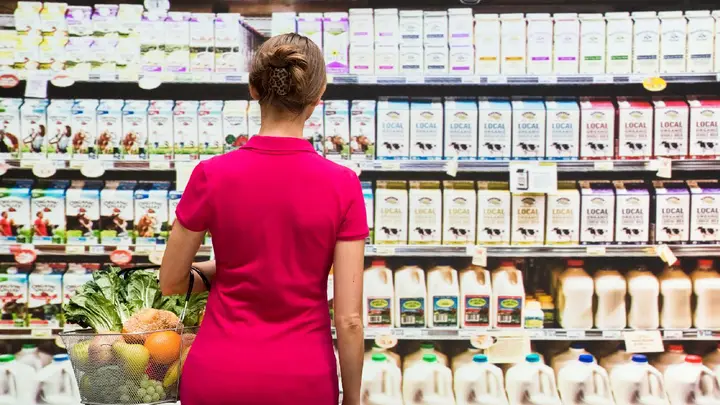
A recent press release issued on behalf of dairy farmers by the Office of Wisconsin Sen. Tammy Baldwin called the FDA’s current proposal an “ill-advised guidance on the unfair use of dairy terms to mislabel plant-based products.”
The Plant Based Foods Association, a national trade association that represents leading plant-based food companies, stated that the FDA’s recommendation for voluntary nutrient statements on plant-based milk is “unprecedented, unwarranted and a solution in search of a problem.”
